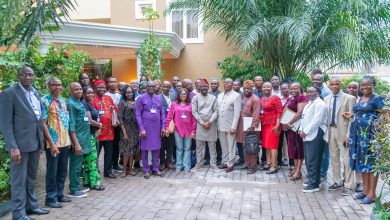Lagos Unveils Diversion Plan as Ogudu/Ifako Bridge Repairs Begin June 28
Lagos announces traffic plan as Ogudu/Ifako Bridge repairs begin June 28, lasting 110 days.
Work will be done in phases with partial closures, alternate routes, and LASTMA support provided.
The Lagos State Government has announced a comprehensive traffic diversion plan ahead of the scheduled repairs on the Ogudu/Ifako Bridge, which will now commence on Saturday, June 28, 2025.
The bridge repairs, which had been postponed earlier, will last for 110 days and are expected to conclude on Wednesday, October 15, 2025. According to a statement from the Commissioner for Transportation, Oluwaseun Osiyemi, the work will be executed in eight phases covering both directions of the bridge.
The project will include partial lane closures, with only a 50-meter section closed before and after each active work area at any given time. This phased approach is designed to reduce disruption to motorists and ensure smoother traffic management.
The first four phases of the repair will focus on the bridge section heading towards Alapere and will run from June 28 to August 16, 2025. The remaining four phases, targeting the Oworoshoki-bound stretch, will take place between August 16 and October 5, 2025.
To ease the impact of the closures, the government has outlined alternative routes for motorists during each phase. In Phase One, motorists coming from Iyana Oworo are advised to use the Gbagada route, link up with Anthony, and then continue their journey via Ikorodu Road. A single lane will remain open near the active work area.
During Phase Two, motorists from Eko Bridge are encouraged to take Funsho Williams Avenue to link up with Ikorodu Road.
Commissioner Osiyemi assured residents that officials of the Lagos State Traffic Management Authority (LASTMA) will be deployed across affected areas to direct traffic and minimize inconvenience throughout the repair period.
The government is urging road users to comply with traffic directives and make use of the suggested alternate routes to avoid delays.



